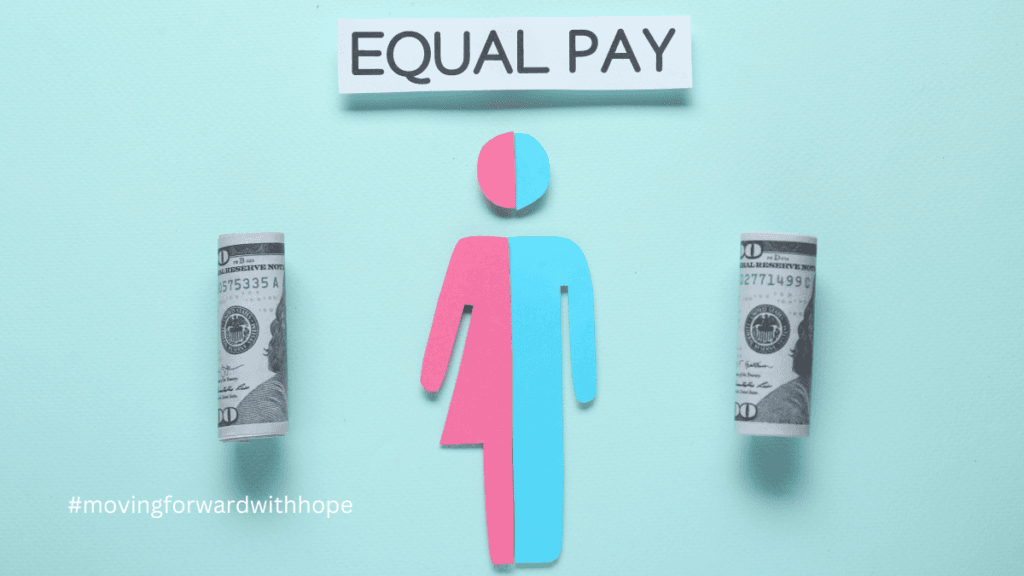Is Marriage Still Relevant for Women in 2024? Despite Feminism and Career Women Progressing
In today’s rapidly evolving world, the institution of marriage is no longer a given, especially for women. With shifting societal norms, the rise of feminism, and growing opportunities for career-driven women, many are questioning whether marriage remains a beneficial or necessary step in their lives. As women gain more independence, power, and freedom to define their own futures, marriage has taken on new meanings—or, for some, has become irrelevant altogether.
In 2024, a growing number of women are choosing to remain unmarried, either rejecting the traditional institution altogether, divorcing post-Covid, or rethinking what a modern partnership looks like. From childfree women to those prioritizing careers over family life, the reasons are diverse and reflect the broader shifts in society, patriarchy, and gender roles.
The Rise of Feminism and Women's Empowerment
The feminist movement has long challenged traditional gender roles and expectations, advocating for women’s equality in all aspects of life—education, work, and relationships. Historically, marriage was often framed as a necessity for women, offering social and economic security. Today, with more women gaining financial independence and control over their lives, the dynamics of marriage have shifted.
Feminism has opened the door for women to question whether marriage, particularly in its traditional form, is truly in their best interest. Many women now view marriage as an option rather than an obligation. The notion of needing a partner for financial stability or societal approval has faded, as women increasingly take charge of their own futures. For many, the power to choose whether or not to marry is a key aspect of female empowerment.
| Statistic | Data | Source |
|---|---|---|
| Percentage of women who remarry after divorce | About 50% | Pew Research (2013) |
| Remarriage rate for women (1960) | 64% | Pew Research (2013) |
| Remarriage rate for women (2013) | 42% | Pew Research (2013) |
| Divorce rate for second marriages | 60% | National Center for Family & Marriage Research (2019) |
| Likelihood of remarriage after abusive first marriage | Lower likelihood due to trust issues and trauma | Journal of Family Issues (2017) |

The Career Woman’s Dilemma: Marriage vs. Ambitionn
In the past, women were often expected to marry young and prioritize family life, leaving career ambitions on the back burner. Today, women are excelling in professional fields, achieving higher levels of education, and advancing in industries traditionally dominated by men. As career women gain more recognition and influence, the question of whether marriage aligns with their professional goals becomes more prominent.
For many women, the demands of a thriving career may not be compatible with the responsibilities of marriage or family life. A high-powered career often involves long hours, travel, and intense dedication, leaving little room for traditional domestic roles. In this context, marriage may feel like a constraint, or at the very least, a challenge to balance.
Too, the expectations placed on women to “have it all”—a successful career, a happy marriage, and children—can create significant pressure. For some, choosing to remain unmarried allows them to focus on their careers without societal judgment or the need to juggle multiple roles.
The Childfree Movement: Redefining Womanhood
In addition to career-focused women, the childfree movement has gained momentum, with many women choosing not to have children. Historically, marriage and motherhood were deeply intertwined, with women often marrying to start families. However, more women today are rejecting the idea that having children is a necessary part of womanhood or fulfillment.
Childfree women are increasingly vocal about their decision to live fulfilling lives without children, free from the societal expectations of motherhood (but not without the commentary from others, it seems).
For these women, marriage may not hold the same appeal as it once did, as the traditional purpose of marriage—procreation and raising a family—is no longer relevant to their goals (which has some men upset). The choice to be childfree also highlights the changing nature of marriage, with many women seeking partnerships that align with their desires for freedom, independence, and personal growth rather than family-building.
Patriarchy and the Power Dynamics of Traditional Marriage
At the heart of the marriage debate is the issue of the patriarchy. Traditional marriage has long been rooted in patriarchal structures, where women were often subservient to their husbands, taking on domestic roles while men provided financial support. While society has made strides in gender equality, remnants of these patriarchal dynamics still exist within marriage, making it a less appealing option for some women.
Many modern women are unwilling to enter into marriages where they are expected to conform to outdated gender roles. They are instead seeking relationships that offer equality, shared responsibilities, and mutual respect. The idea of a modern partnership, where both individuals contribute equally to household duties, finances, and decision-making, is becoming increasingly popular.
For many women, the traditional “wife” role—focused on caregiving, homemaking, and child-rearing—feels incompatible with their desire for personal and professional fulfillment. Instead, they may seek non-traditional partnerships that allow them to pursue their goals while maintaining a healthy relationship with a partner who shares the load equally.
Marriage Redefined: A Modern Approach
While some women are rejecting marriage outright, others are reimagining it in a way that fits their values and lifestyle. Modern partnerships are often characterized by fluidity, where traditional gender roles are abandoned in favor of more balanced, egalitarian relationships.
This shift has given rise to various forms of non-traditional marriages, from open relationships to partnerships where each individual maintains their own career, financial independence, and personal space.
The rise of dual-income households has also shifted the dynamics within marriage, with both partners contributing financially and sharing domestic responsibilities. In these marriages, women are no longer expected to be the primary caregivers or homemakers, allowing for greater flexibility and a more equitable division of labor.
Many couples today are crafting their own rules, focusing on communication, personal growth, and mutual respect rather than adhering to societal expectations. For these women, marriage can still be relevant, but only when it aligns with their values and lifestyle choices.
Why Some Women Are Opting Out of Marriage
For an increasing number of women, opting out of marriage altogether is a conscious choice (and this increases if the first marriage is abusive).
The freedom to live independently, travel, pursue passions, and focus on personal growth without the obligations of marriage appeals to many. For some, relationships without formal commitment provide more flexibility, allowing them to engage in partnerships that are based on love and connection without the traditional structures of marriage.
Too, the concept of “self-partnering,” popularized by public figures like Emma Watson, reflects a growing trend of women who prioritize their relationship with themselves over the need for a romantic partner. These women embrace the idea that fulfillment and happiness can come from within, rather than being tied to a spouse or a marriage.
Is Marriage Still Relevant?
In 2024, the question of whether marriage is relevant for women is deeply personal and varied. For some, marriage remains a meaningful and fulfilling institution, particularly when redefined in modern terms. For others, it feels outdated, restrictive, or simply unnecessary.
What’s clear is that women today have more freedom than ever to make choices about their lives, relationships, and futures. Whether they choose to marry, remain single, or enter into non-traditional partnerships, the most important thing is that they have the power to decide what works best for them. As societal norms continue to shift, women will continue to challenge and redefine the role of marriage in their lives—on their own terms.
What do you think? Have you changed your opinion on marriage? Drop a comment and share your thoughts!
marriage still relevant marriage still relevant marriage still relevant marriage still relevant marriage still relevant marriage still relevant marriage still relevant marriage still relevant marriage still relevant marriage still relevant marriage still relevant




![Grey Rock Technique: [How to] Keep Your Sanity in the Midst of Chaos 5 Grey Rock Technique](https://movingforwardafterabuse.com/wp-content/uploads/2022/02/Grey-Rock-768x403.png)


